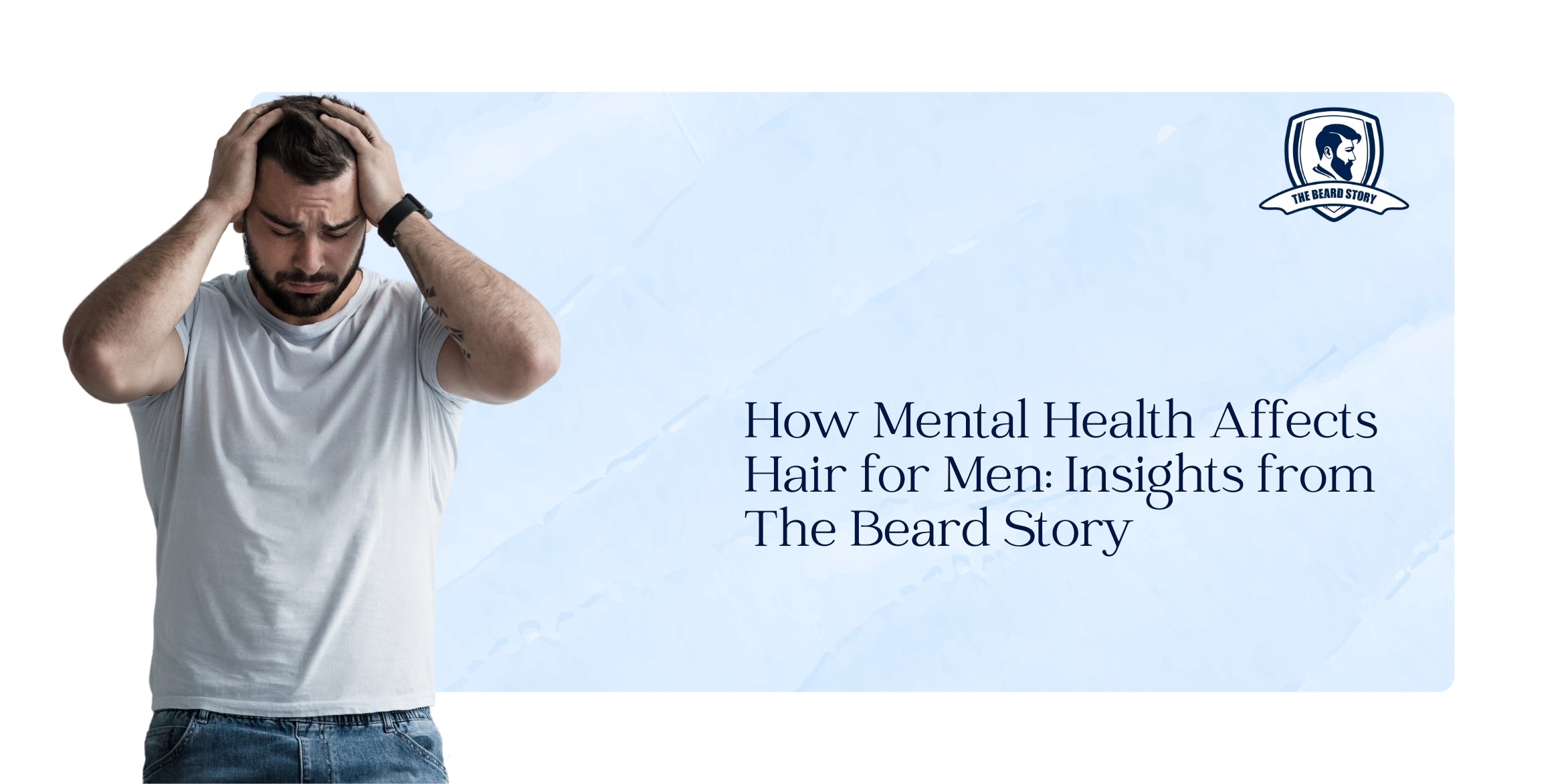Introduction
In the modern world, the importance of mental health is increasingly recognized, not just for overall well-being but also for its significant impact on physical health, including hair. For men, maintaining healthy hair is not merely about aesthetics but also about self-esteem and confidence. At The Beard Story, we understand that your mental health plays a crucial role in the condition of your hair. This blog delves into how mental health affects men's hair, the underlying mechanisms, and practical tips for maintaining healthy hair amidst mental health challenges.
The Connection Between Mental Health and Hair
Stress and Hair Health
Stress is a primary factor that can negatively impact hair health. When experiencing stress, the body releases cortisol and other stress hormones, which can disrupt the normal hair growth cycle. This disruption can lead to conditions such as:
- Telogen Effluvium: This condition occurs when significant stress pushes a large number of hair follicles into the resting phase, resulting in noticeable hair shedding after a few months. While often temporary, it can be distressing.
- Alopecia Areata: Severe stress can trigger this autoimmune disorder, where the immune system attacks hair follicles, leading to patchy hair loss and, in some cases, total hair loss on the scalp or body.
Anxiety and Hair Health
Chronic anxiety can take a toll on hair. Anxiety can lead to behaviors such as hair pulling (trichotillomania), causing noticeable hair loss and damage. Additionally, anxiety can contribute to poor sleep and nutritional deficiencies, both of which affect hair health.
Depression and Hair Changes
Depression often results in a lack of motivation for self-care, including hair care. Neglecting regular grooming and hair maintenance can lead to issues such as dryness, brittleness, and breakage. Moreover, the physiological effects of depression, such as changes in hormone levels and poor nutrition, can also impact hair health.
Mechanisms Behind Mental Health-Induced Hair Issues
Hormonal Imbalances
Mental health issues like stress, anxiety, and depression can lead to hormonal imbalances. Elevated levels of cortisol, for instance, can inhibit the production of hair growth factors and disrupt the hair growth cycle. Hormonal fluctuations can also increase oil production on the scalp, potentially leading to conditions like dandruff and scalp inflammation, which further affect hair health.
Nutritional Deficiencies
Mental health conditions can influence eating habits, often leading to poor nutrition. A lack of essential nutrients such as vitamins (A, C, D, E, and B-complex), minerals (zinc, iron, and magnesium), and proteins can weaken hair and slow its growth. For example, low levels of iron can cause anemia, which is associated with hair thinning and loss.
Coping Strategies for Healthy Hair
Stress Management
Managing stress is crucial for maintaining healthy hair. Here are some effective strategies:
- Regular Exercise: Physical activity helps reduce stress hormones and increases endorphin levels, improving mood and overall well-being.
- Mindfulness and Meditation: These practices can help calm the mind, reduce stress, and promote relaxation.
- Healthy Sleep Patterns: Ensure adequate and quality sleep to support overall health, including hair health.
Proper Hair Care Routine
A consistent hair care routine can mitigate the effects of mental health issues on hair:
- Gentle Hair Products: Use shampoos and conditioners free from harsh chemicals and sulfates. Opt for products that nourish and strengthen hair.
- Regular Scalp Care: Keep the scalp clean and well-moisturized to promote a healthy environment for hair growth. with hair oil
- Avoid Heat and Chemical Damage: Minimize the use of heat styling tools and chemical treatments that can weaken and damage hair.
Nutritional Support
Maintaining a balanced diet rich in essential nutrients is vital for hair health:
- Vitamins and Minerals: Ensure your diet includes foods high in vitamins A, C, D, E, and B-complex, as well as minerals like zinc and iron.
- Protein: Hair is primarily made of protein, so including sufficient protein in your diet is crucial for hair strength and growth.
- Hydration: Drink plenty of water to keep your body and hair hydrated.
Conclusion
The impact of mental health on hair is significant and multifaceted. For men, addressing mental health issues is essential not only for overall well-being but also for maintaining healthy, strong, and vibrant hair. At The Beard Story, we understand the importance of both mental and hair health. By understanding the connection between mental health and hair, and adopting proactive measures, men can better manage their hair health even in the face of mental health challenges.
Call to Action
If you are experiencing stress, anxiety, or other mental health issues, don't hesitate to seek help. Your hair health is closely linked to your overall well-being. Incorporate stress management techniques, maintain a healthy hair care routine, and ensure a balanced diet to support both your mental and physical health. Remember, taking care of your mind is just as important as taking care of your body. Explore The Beard Story's range of products designed to nourish and strengthen your hair, supporting you on your journey to better health and well-being.





